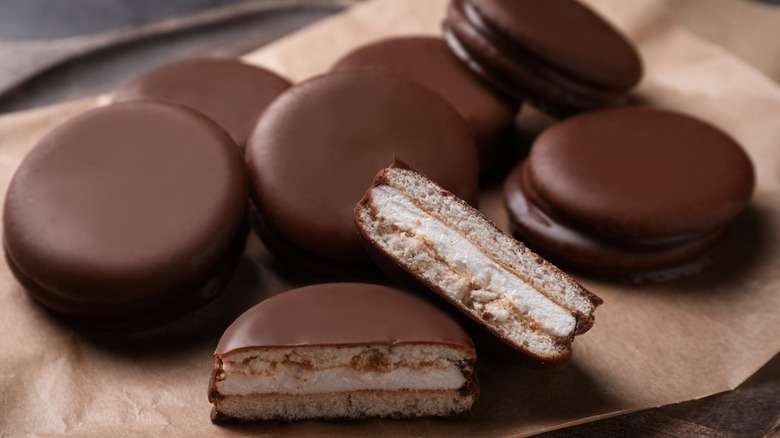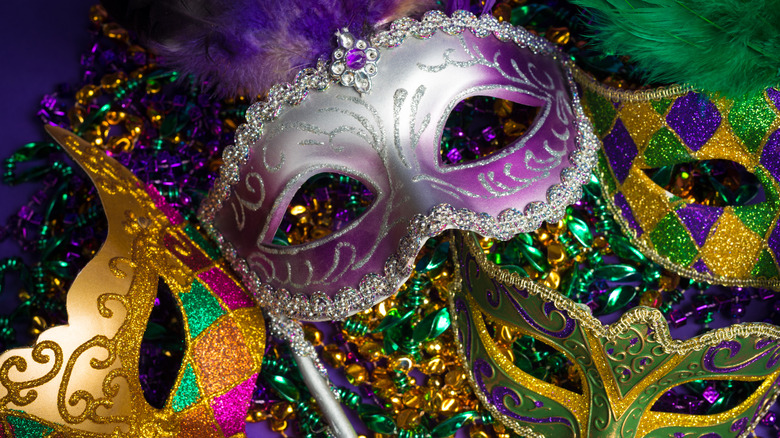Go To The Site Of The First US Mardi Gras To Find 50,000 Free MoonPies
A week after Valentine's Day celebrations conclude, Mardi Gras (also called Carnival), shoots into full swing in New Orleans, Brazil, and Venice, Italy. Created thousands of years ago as a Roman Catholic holiday, the multi-day festival boasts parade floats, costumes, beads, and amazing food. Traditional Mardi Gras food consists of Cajun favorites like rice-based jambalaya, gumbo filled with numerous meats, and perhaps the most popular creation: King Cake.
King Cake, which purposefully comes in a yellow, green, and purple color scheme, is made of cinnamon roll and coffee cake. Most of the time, a plastic baby is hidden within the cake to indicate who's responsible for bringing the next cake. This helps to extend the celebration up until its grand finale on Fat Tuesday.
When you think of Mardi Gras in the United States, the New Orleans, Louisiana and Bourbon Street are quick associations. What many don't know is that the American festivities didn't begin in New Orleans, but rather, 125 miles east in a city where you can find a mass amount of MoonPies if you show up early enough.
MoonPies were the perfect choice for parades
An interesting twist will make you forget everything you thought you knew about Mardi Gras. The very first American celebration took place in Mobile, Alabama rather than New Orleans. That's right; the celebration's 1711 inception didn't include Crescent City or Bourbon Street at all. There's a simple explanation for this, though. In the early 1700s, Mobile was the capital of French Louisiana, so the facts aren't quite as obscured as you may have feared.
Celebrations are still held there, and since the mid-1900s, they've incorporated a mass amount of MoonPies into their yearly parade. Hailing from Chattanooga Bakery, an estimated 500,000 MoonPies are tossed into the crowd annually because, according to executive director of the Mobile Carnival Association Judi Gulledge. The treats are soft, have enough weight for throwing, and are inexpensive.
The integration of MoonPies into Mardi Gras helped the company out a great deal. "We now sell millions of them during Mardi Gras," Tory Johnston, Chattanooga Bakery's vice president of sales and marketing, told Southern Living. Chattanooga Bakery was struggling at the time, and the MoonPie helped pull the business out of the mud. Interestingly, the idea of these pies were thought up when bakery workers were seen warming up marshmallows to dip their cookies in. Not a bad a-ha moment to lead to a beloved treat and holiday tradition.

